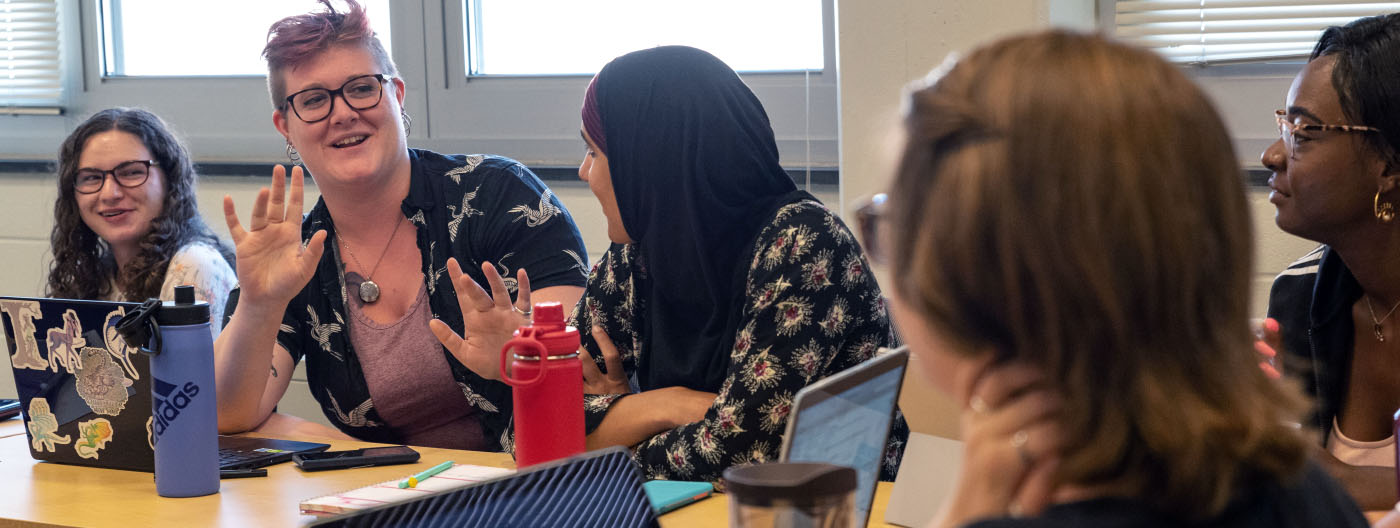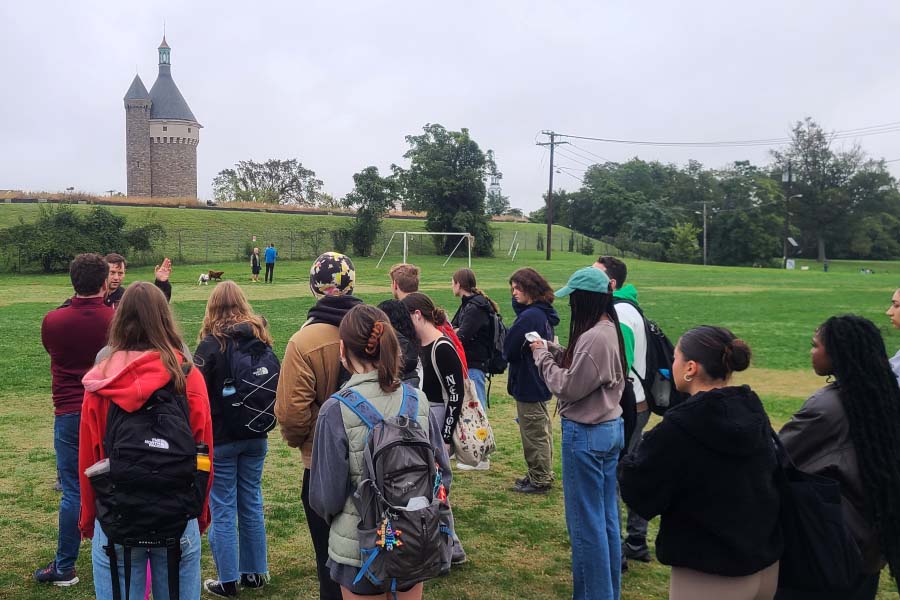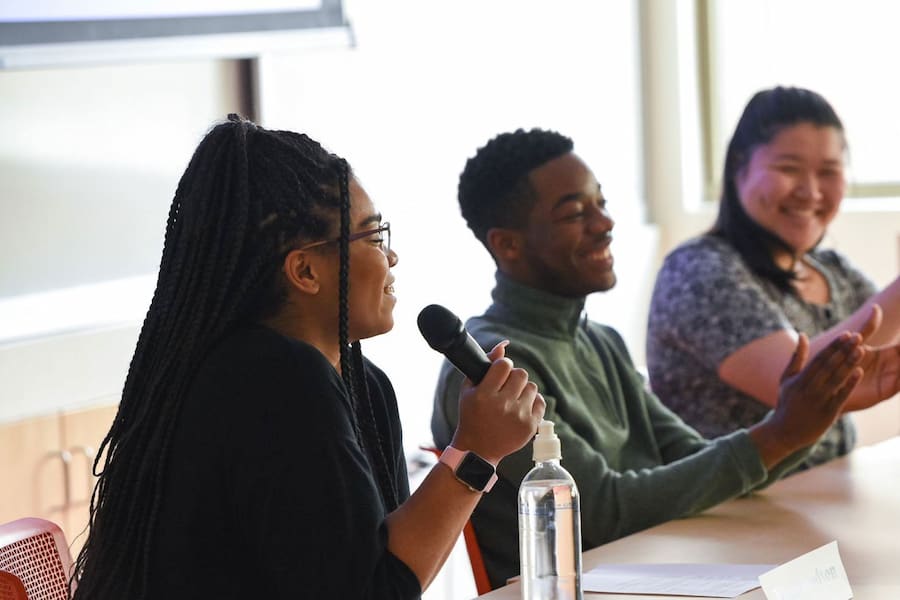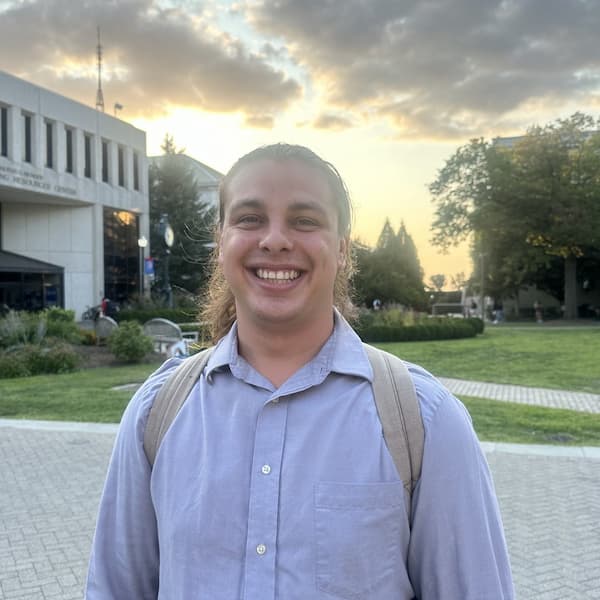
Contact Us
Battelle-Tompkins, Room 200 on a map
CAS Dean's Office 4400 Massachusetts Avenue NW Washington, DC 20016-8012 United StatesInclusive Excellence

The College of Arts and Sciences continues to work toward inclusive excellence by engaging, including, and honoring the rich perspectives of our students, faculty, staff, alumni, friends, and affiliates through our courses, research, and scholarship.
Additional CAS Inclusive Excellence resources available on OneDrive (AU login required).
CAS Inclusive Excellence Committee
- Omi Davis-Smith
Fellow, Arts - Kirsten Dorr
Fellow, Humanities - Nabina Liebow
CAS LEAD Director - Contact: collegedeansoffice@american.edu

Research
- Professor Marianne Noble's (Literature) essay, "Emily Dickinson and Harriet Beecher Stowe Responding to Slavery," argues that Dickinson’s poem “One need not be a chamber to be haunted” derives from a passage in Uncle Tom’s Cabin and examines the limits of Dickinson's political thought and the implications of her identification with Stowe’s evil slaveholder.
- Michele Carter's (Psychology) study, "'Is It Because I’m Black?': A Study of the African American Perception of Microaggression Depending on Aggressor," furthers the understanding of microaggressions and how they are interpreted. This was the first study to demonstrate that the race of those who commit microaggressions matters in terms of viewing the microaggression as offensive.
Curriculum

Improvisation in Theory & Practice
Most music theory classes center on Western music and ideas; however, our new hybrid classroom/ensemble experience highlights a wide range of musical traditions and finds points of shared connection and difference. The course engages with non-Western approaches to tuning, scales, and meter; focuses on timbre and rhythm; and ultimately increases access to the field of composition by expanding the definition of composing to improvisatory practices from a wide-range of traditions.

See Yourself as an Economist
The number of economists from marginalized groups is growing. Our new video tutorials for Principles of Economics, narrated by a diverse group of faculty, graduate students, and alumni, allow students to see and hear the voices of a diverse group of economists who also happen to be AU community members!
Photo: Nicholas Cappello on Unsplash

Representation in Biomed Research
This course discusses issues of inequality embedded in biological research and healthcare. Students learn concepts and technologies used in biomedical research and explore case studies that describe how underserved communities have been disadvantaged, leading to disparities and mistrust of the health system.

DIV Courses
These courses, with a “DIV” designation, are part of the AU Core Curriculum. They address issues of power, privilege, and inequality that are embedded in social, cultural, or economic hierarchies.
CAS DIV courses All AU DIV courses

ADVANCE AU
The NSF awarded a two-year ADVANCE grant of $300,000 to support AU in an analysis of gender and racial equity among its STEM faculty, with the aim of increasing AU’s number of women and underrepresented minority STEM faculty. The ADVANCE grant has powered a symposium on gender and race in STEM, career development mini-grants, and a peer mentoring program.
ADVANCE AU

Initiative for STEM Education, Equity and Ethics
AU's ISE3 program works to effect genuine and lasting culture change on campus so that undergraduate students from all backgrounds will excel in STEM and graduate from college well prepared to pursue advanced degrees and leadership roles.
ISE3

DC Space Grant Consortium
Based at AU, the funds internships and summer research experiences at NASA with an emphasis on supporting women and underrepresented minorities.

